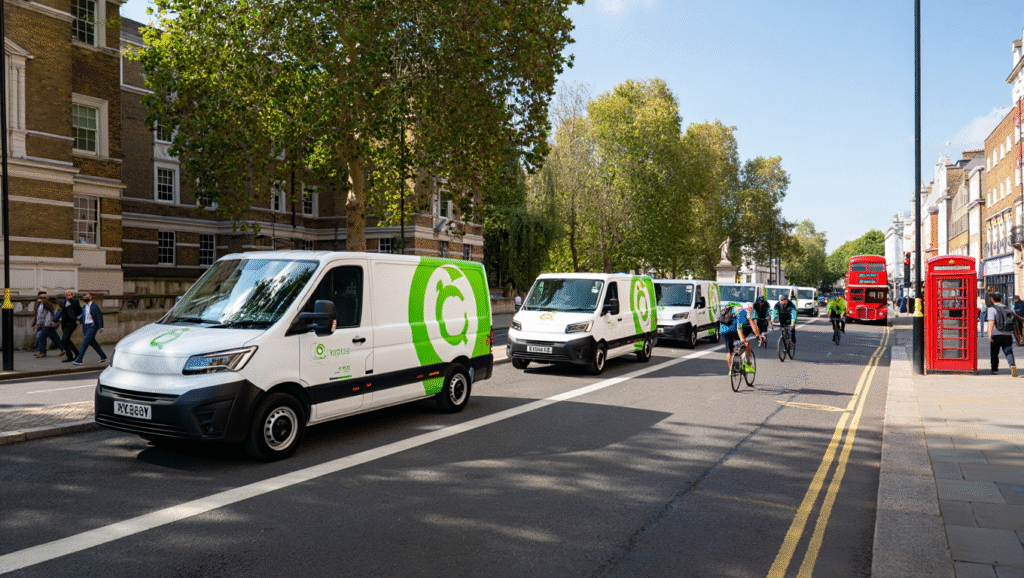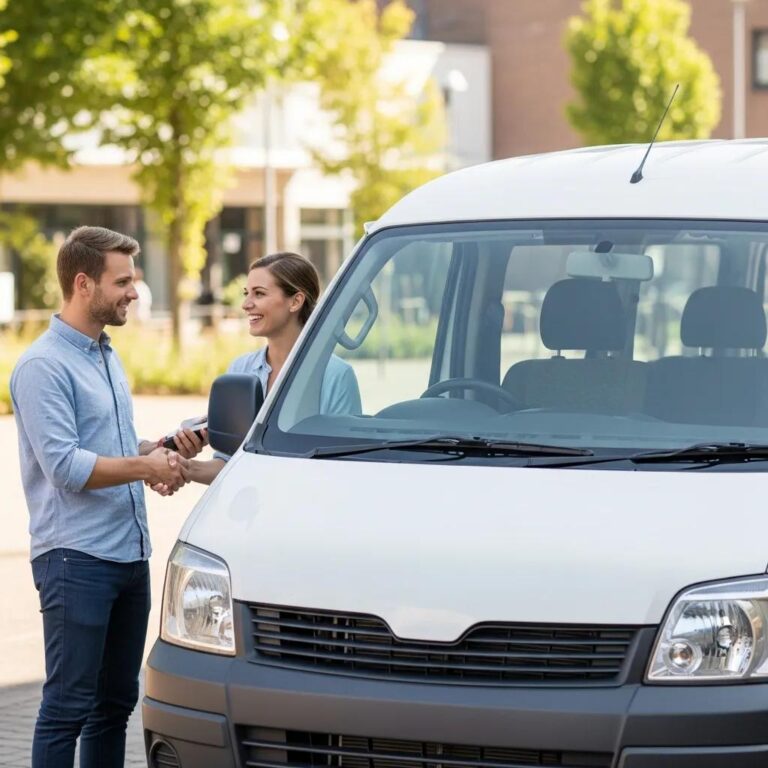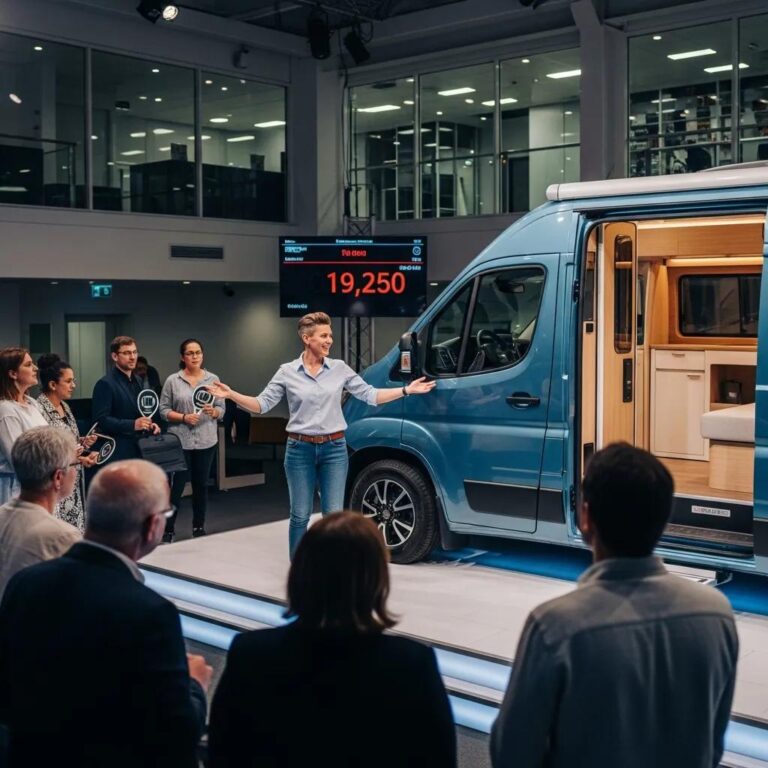
With more vans on UK roads than ever before, delivery companies are looking at ways to cut emissions and run greener fleets. Electric delivery vans are becoming a popular choice, and there are good reasons why. Let’s look at the electric commercial vans available in the UK, how they can benefit your business, and what the future holds for eco-friendly delivery vehicles.
Why Electric Vans Are Taking Off in the UK
The UK government’s Road to Zero strategy aims to make transport cleaner. Part of this plan is to stop selling new petrol and diesel cars by 2030. This has led to more companies thinking about switching to electric vans for their deliveries.
Electric vans don’t produce exhaust emissions, which is good news for air quality in our towns and cities. The environmental impact of the logistics industry is something businesses need to address, and electric vans offer a practical solution.
The UK government has introduced a Zero-emission vehicle (ZEV) mandate that requires car and van makers to ensure a certain percentage of their sales are zero-emission vehicles. This means more electric options will be coming onto the market.
There are also tax benefits and incentives for businesses that switch to electric vans, including lower Vehicle Excise Duty (road tax) and beneficial company car tax rates for employees.
How Electric Vans Work and Their Benefits
How electric vehicles work is pretty straightforward. Instead of an engine burning fuel, an electric van has a battery that powers an electric motor. You charge the battery from a charging point, just like you’d charge your phone.
The benefits of electric delivery vans include:
- Lower running costs – electricity is cheaper than diesel or petrol
- Cheaper maintenance – fewer moving parts mean less to go wrong
- Zero tailpipe emissions – better for the environment and air quality
- Quieter operation – good for early morning or late-night deliveries
- Access to low emission zones without charges
- Better company image – customers like eco-friendly businesses
Many electric vans now offer ranges of 100-200 miles on a single charge, which is enough for most daily delivery routes. And as battery technology improves, these ranges are getting longer.
The Best Electric Vans for Delivery in the UK
If you’re looking for best electric vans for delivery in the UK, you’ve got several options:
- Volkswagen ID. Buzz Cargo – The Volkswagen ID. Buzz Cargo specifications show it offers around 256 miles of range, with a payload of up to 650kg. It’s got that cool retro look but with modern tech.
- Ford E-Transit – A popular choice with up to 196 miles of range and multiple size options.
- Vauxhall Vivaro Electric – Offers around 205 miles of range and up to 1,226kg payload capacity.
- Mercedes eSprinter – Great for larger deliveries with its spacious cargo area.
- Nissan e-NV200 – A smaller option that’s perfect for urban deliveries.
- BYD E-Vali – A newer entry to the UK market with competitive range and payload capabilities.
When choosing an electric van, think about your typical daily mileage, payload needs, and whether you’ll be doing mainly urban or longer-distance deliveries.
Charging Infrastructure for Electric Vans
One of the biggest concerns for businesses is the charging infrastructure for electric vehicles in the UK. The good news is that it’s growing fast.
Currently, there are over 50,000 public charging points across the UK, with more being added every month. The UK government has committed to improving this infrastructure further, with plans for at least 300,000 public chargers by 2030.
For delivery businesses, installing charging points at your depot or warehouse makes sense. This way, vans can charge overnight when electricity rates are often cheaper. The UK government’s electric vehicle infrastructure strategy includes support for businesses installing charging infrastructure.
Types of chargers available:
- Slow chargers (3-7kW) – Good for overnight charging
- Fast chargers (7-22kW) – Can fully charge most vans in 4-8 hours
- Rapid chargers (50kW+) – Can give an 80% charge in around 45 minutes
Planning charging stops into delivery routes is becoming easier with better mapping tools and apps that show available charging points.
Fleet Management for Electric Vehicles
Managing a fleet of electric delivery vans requires some new approaches. Fleet management for electric vehicles involves:
- Planning routes with charging stops in mind
- Training drivers on maximising range (smooth driving helps)
- Understanding battery degradation over time
- Managing charging schedules to take advantage of lower electricity rates
- Monitoring electrical capacity at depots
The good news is that many electric vans now come with telematics systems that help you track battery levels, predict range, and plan charging more effectively.
Big players like Amazon are investing in electric delivery vehicles too, showing that this is becoming the standard for delivery operations.
Beyond Vans: Other Sustainable Delivery Options
While electric vans are great, there are other sustainable delivery options in the UK worth considering:
- Electric Cargo Bikes – Electric cargo bikes as a sustainable delivery solution are perfect for urban deliveries. They’re cheap to run, can bypass traffic, and have zero emissions.
- Rail Freight – For longer distances, high-speed rail freight as an alternative to trucks in the UK can reduce carbon emissions significantly.
- Hydrogen Vehicles – Some companies are exploring hydrogen fuel cell vans as an alternative to battery electric vehicles, especially for longer ranges.
Companies like Packfleet are expanding their electric vehicle deliveries across London, showing there’s real growth in this area.
Getting Started with Electric Delivery Vans
If you’re thinking about switching to electric vans for your delivery business, here are some steps to take:
- Audit your current fleet usage – understand your daily mileage needs and payload requirements
- Research available van models that meet those needs
- Look into electric vehicle grants and incentives in the UK to help with costs
- Plan your charging infrastructure – at depots and on routes
- Start with a pilot of a few vehicles to work out any kinks
- Train your drivers and maintenance staff on the new technology
The benefits of electric vans for businesses go beyond just lower emissions – they can save you money and improve your company’s image too.
Conclusion
Electric commercial vans in the UK are no longer just a future idea – they’re a practical reality for delivery businesses today. With improving range, growing charging infrastructure, and clear government support, the shift towards zero-emission delivery solutions is well underway.
Making the switch takes some planning, but with the right approach, electric delivery vans can be a smart business decision as well as an environmental one. As we move towards the UK government’s plan to ban new petrol and diesel cars by 2030, now is the time to consider making the switch.
If you’re considering upgrading your fleet or simply looking to part with an old van, get in touch with us at Cash Your Vans. Whether your van is in working condition or not, we offer same-day quotes and a hassle-free process. Let us help you make the most of your old van today!



